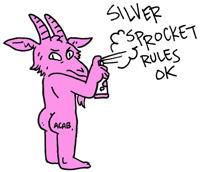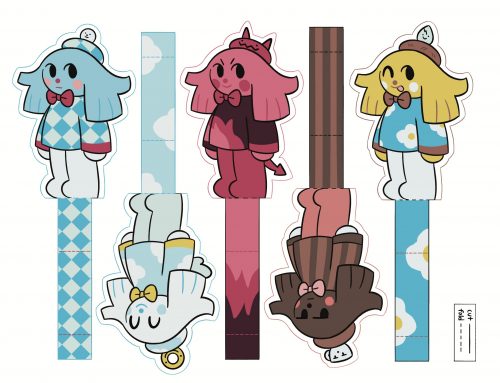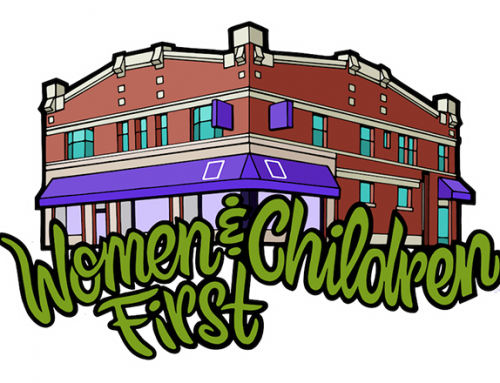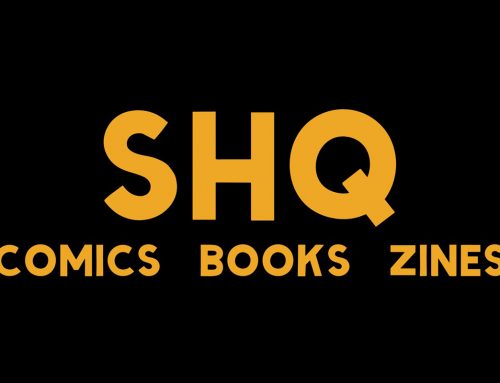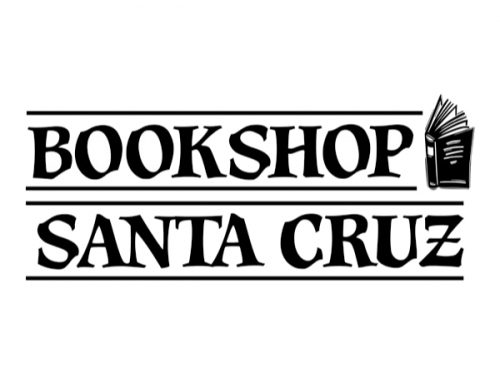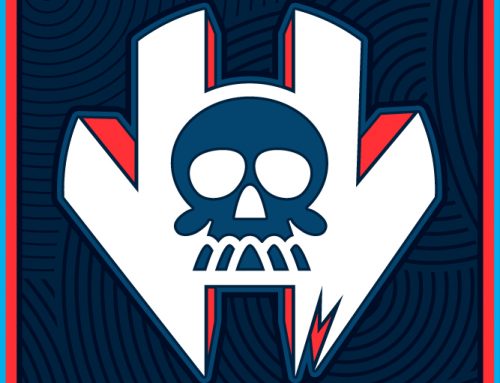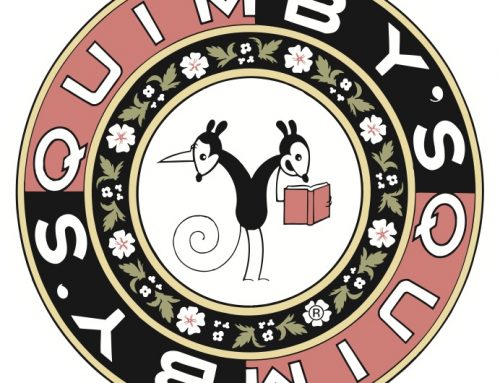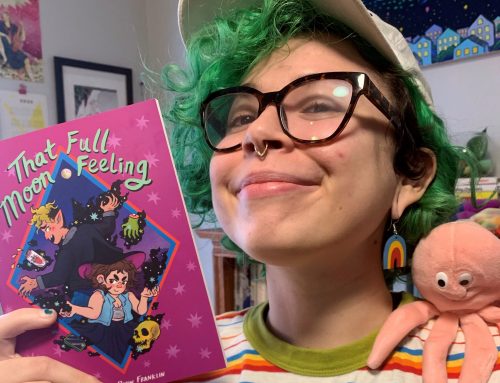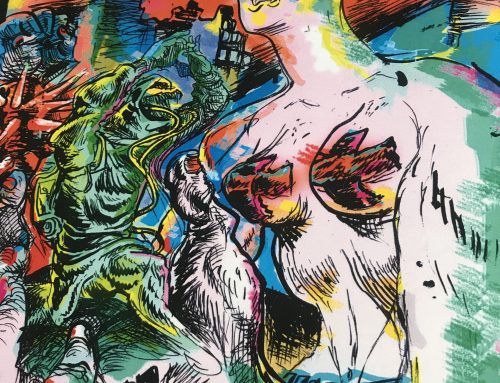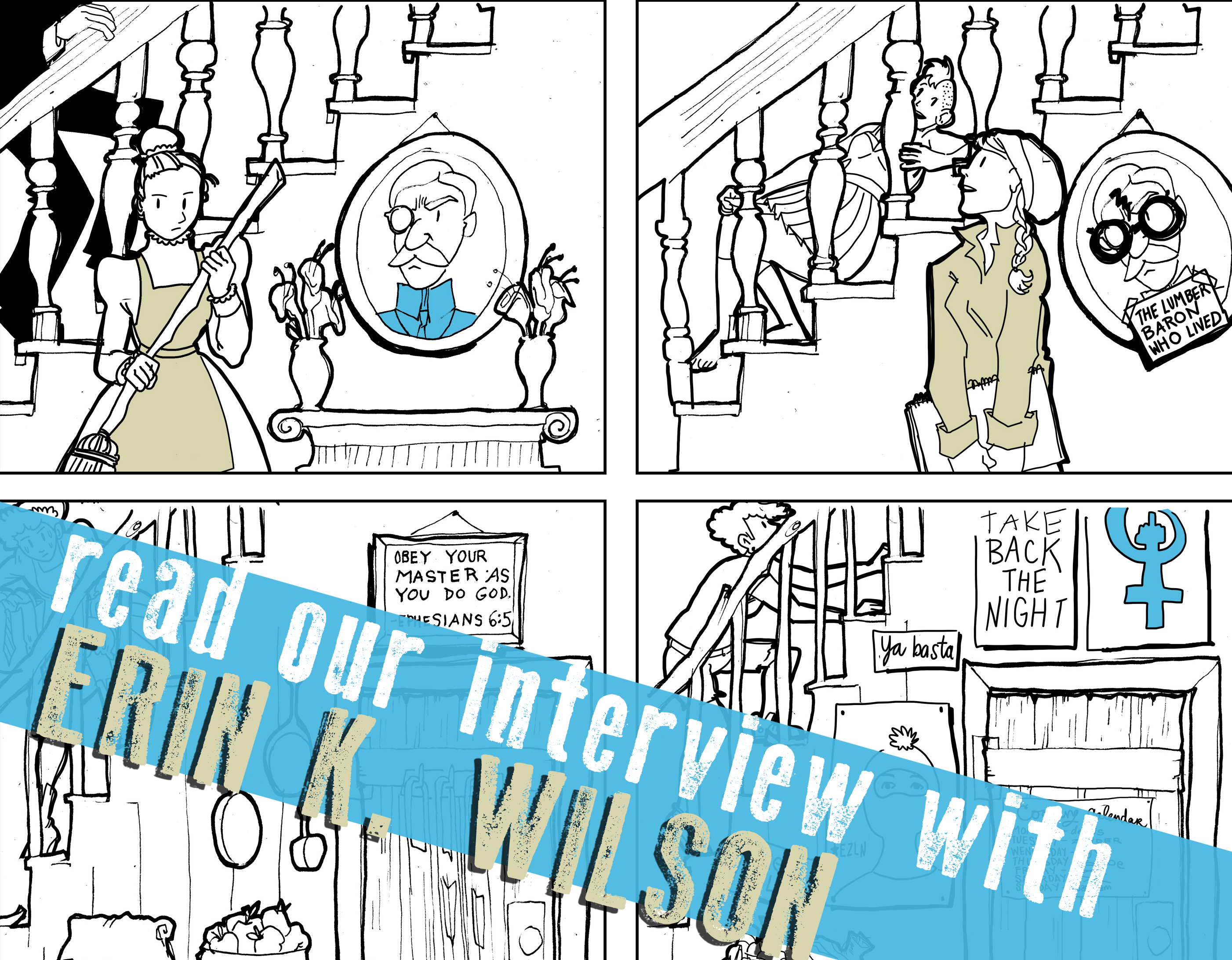
The work of Erin K Wilson is so enthralling not only because of the subjects she draws and the palettes she chooses, but also because of the engaging storytelling and history contained within her art. Read on to find out more about her graphic novel, her involvement with NOCAZ, and why she put down roots in New Orleans.
Interview by Natalye for Silver Sprocket
Tell us about yourself. How did you get involved in AYW? What other kind of things do you do?
I got involved with As You Were because I received an invitation based on the recommendation of my dear friend and colleague, Ben Passmore. Ben and I have very different styles, and we write about very different things. But we are both trying very hard, and I think we respect that in each other. I also like to think we find the other quite funny, but in completely different ways. He recommended me to the editors at AYW, and I was honored to receive an invitation! It was my first anthology submission, and I tried really hard to rise to the standards set by previous issues.
Your work as an artist covers a lot of different ground: what contributed to this kind of diversity?
I would call myself a Jill of all trades. I have wanted to write comics ever since reading Blankets when I was 16. But like most artists, I hate everything that I make, and at the exact moment that my dream of writing a graphic novel was born, I also KNEW that it was impossible and that anything I made would be worthless anyways, so I decided to pursue other things.
I got a degree in theater, which eventually made me unhappy. I became obsessed with animation, but realized that pursuing it as a profession would also make me unhappy. I spiraled into depression and became a traveler—ending up in a traveling art collective (the one referenced in my graphic novel Snowbird), where I was politically educated and decided to become the white savior and save the world.
All of these things, everything I did, was truly to avoid the eventual task of trying to write a graphic novel. Of course, I am glad that I did all of these things; they inform what I have made. But I also feel like everything I’ve done is motivated by guilt, shame, and requirement. I feel ambitious and also insincere in my motivations. This tends to bleed out in everything I do. Does this make sense?
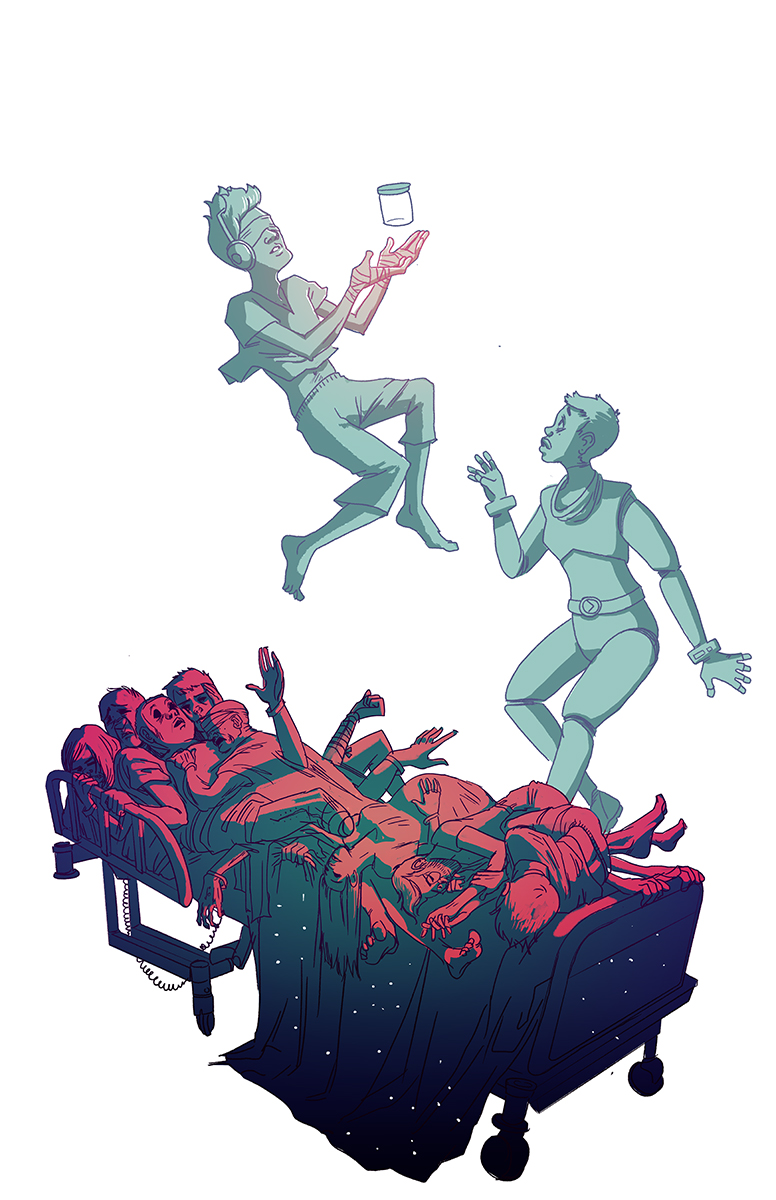
Your graphic novel, Snowbird, was set to be one book and now is supposed to be three. What can you tell us about this?
When I got to page 50, I realized that while I knew generally what I was writing about, the story was about to careen out of control. I wrote Book 1 as a stream-of-consciousness style type of story. This is not appropriate for the story that I’m setting up to tell.
In the winter of 2010, the artist/musician/punk community was rocked by a series of violent assaults, murders, and a fire that led to the deaths of eight travelers. Police violence escalated, and eventually our info shop was shut down by the police. This is the shortest way to tell you what I intend to tell you at great length, with loving detail, in books2 and 3 of Snowbird.
It became clear at page 50 that I didn’t have a true plan, and that I needed to take a break and write out my script. I have now been working on the script for Book 2 for the past three years, doing more research than I’ve ever done before. I’ve been going to court cases for a person who has been indicted for the murder of a member of my community (whose name was Flee). This young person was also indicted of 19 counts of violent crime, including violently assaulting another close friend of mine (who will go unnamed).
Very long story short: I realized, with a shocking fear, that I was going to do a mediocre job. I needed to do a very good job. A stellar job. An honorable and loving job. That’s what I’ve been working on for the past few years. It’s going to be a few more years before you see more from me. You might forget about me during that time. But don’t worry… it’s going to be worth it. I promise.
Snowbird also hints at you being an activist of some sort, but it’s not entirely clear. For those of us who don’t know, what kind of work do you do?
For many years I was a member of the Beehive Design Collective. I gave lectures at universities across the nation about global political politics. But these days, my mental and physical health have limited my ability to organize and work.
I also have been analyzing the white savior in myself and questioning when and where I should be putting my big loud voice to use. I’ve decided, for now, to use it to organize the New Orleans Comics and Zine Festival (NOCAZ) with a bunch of my like-minded peers. It is a pretty low stakes event, but we are doing our best to make it as sharply on point as possible. It is an experiment. Can we create a space that resists white supremacy, serves lunch, and is fun and inspiring? If we can, what does that mean for our future? I guess for me, what does it mean for my future? Not sure yet.
What is your living situation like now? As someone who has lived elsewhere and been a lot of other places, what can you tell us about New Orleans?
Now I am fully settled in New Orleans. I currently work at an elementary school as an after-school comic book teacher (I KNOW, IT’S AMAZING) and I do have free time during the summers. In fact, I have to find work in the summers to offset the time I have without making money.
Two of my best friends in the world own a farm in the mountains outside of Asheville, and they are about to have a baby. While it is a far cry from the snowbirding that I used to do, I do like to take a summertime trip to the mountains and hang out with my friends on their farm. It enables me to visit my family (who live in Atlanta) and I will return home after two months away.
I get lots of jokes from people about my summer travels; they love to point out that I am still snowbirding. My response to this is that I am easing up on the harsh judgments I have on myself and others. New Orleans cannot be a place with a one-way door. What world is this, if people are not allowed to leave? I also have lessened my grip on judging people for their individual choices. My own struggles with mental health have taught me that you truly don’t know what is going on inside someone else’s life. It’s okay for me to take a summer trip. If people want to make fun of me for it, I guess I asked for it by writing a book called Snowbird. I’ll take it.
And when it comes to New Orleans, I do believe it is the most special city in the world. But that is because, for me, it is. I’ve lived on the same block for the past five years. I’ve developed relationships with the families that live there. I have children in my life now. I am friends with mothers, their children are my best friends, and we all go to the park. I work for two week-long summer camps. I have been witness to many young people growing up. Birthday parties. New babies being born. This is the magic of staying in one place. It has so little to do with New Orleans itself. It has to do with you, and the places and people you love.
For all the traveling I ever did, I never thought about what would happen to me if I stayed. There is a different world of adventure and magic available to you when you put your roots in the ground. Every passing year opens up new doors for me. New opportunities. New achievements. It’s special because I chose to stay. Yes, New Orleans is special to me. I like to be hot and sweaty and swimming in the city pool with my friends. Playing Red Light, Green Light with kids at sunset and then closing the door on my solo apartment and laying in front of the fan and planning my comic book curriculum gives me a peace I have never known.
But what is special to you? Where are your people? Where are the children that you want to read to? What traditions call to you? Do you actually like to be hot? Do you think snowmen are fun? I hate them. They hurt my hands.
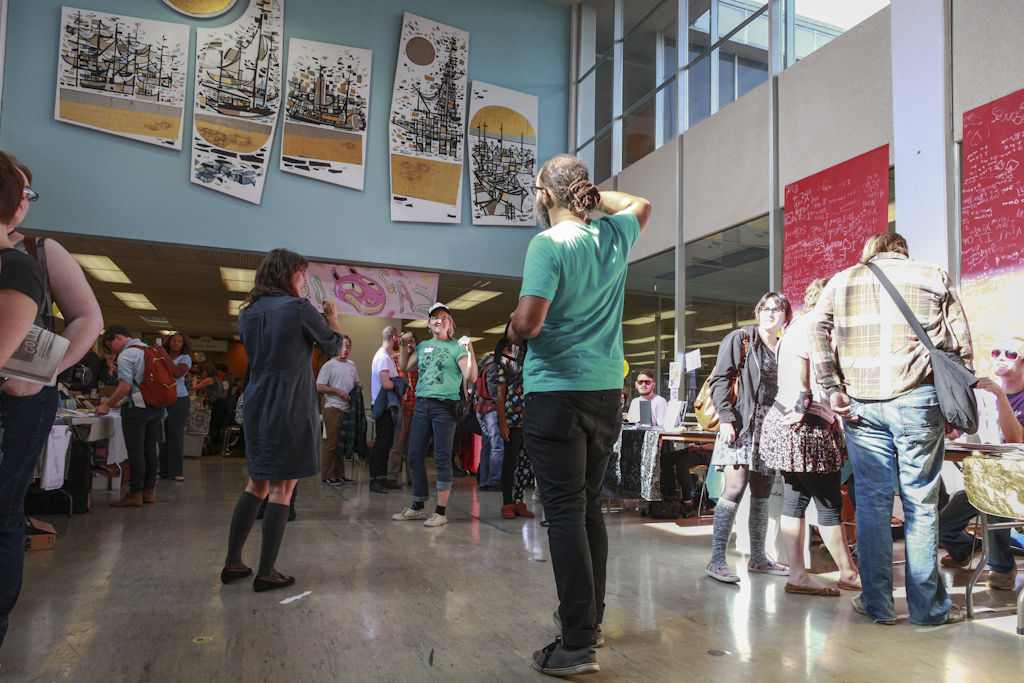
As a co-organizer of NOCAZ, what can you tell us about the festival and its beginnings, as well as how you have seen it grow?
I think that NOCAZ is a beautiful place to experiment. Because it is so lovely and low stakes (amazing and talented people gathering to share their work and have a pretty good time), it seems like, theoretically, a straightforward environment to create the community we want to see, amirite?
But despite what I wish, it’s harder that I imagined. Not terribly difficult, but it takes focus and intention to make sure that white supremacy doesn’t become the narrative. It’s easier than you think for that invasive weed to take over your beautiful idea garden—especially when it’s a collaborative effort involving many participants.
So far, it’s been wonderful. But it’s a very healthy exercise in taking something that seems harmless and making sure it stays so. The bigger that NOCAZ gets, the more worried I get that total jerks will show up hearing that this “cool thing” is happening and try to get on the bandwagon. Does this make sense?
We are very focused on making sure that we always highlight individuals over large presses, give the spotlight to newcomers, and never allow bigoted content to slide under our noses. This is hard too, since we are not a curated event. But we do pay careful attention to make sure that nothing hateful lands on the table in the New Orleans public library.
What does 2016 look like for you in terms of creative things?
I turned 30 this year, and I’m struggling to find a way to make enough money to live and still be happy. Currently, I’m not able to produce Snowbird at the rate that I want because I’m struggling to pay off all my debt (cue violins). But only in the last few months I’ve finally landed a really solid illustration contract with a decent magazine, and it’s looking like I’ll finally have the room to breathe to exit the research phase of Snowbird and move into thumbnailing the page layout. But while I’m still writing, I’m trying to explore new mediums and expand my work in backgrounds. If you wanna take a look, I’ve been busting out standalone editorial illustrations for the past year.
I’ve also been working on experimenting with short story and creative storytelling this past year. I’m trying really hard to experiment with using environment and background to tell the story without as much “narrator” voice. That’s one of the strongest critiques I’ve received of Snowbird, and something I’m going to try to slowly tone down in books 2 and 3. It’s a useful tool, but I tend to lean on it really heavily. I wrote a short story called “Nothing” using no narrator voice and no explanations at all. I’m trying to remember that the reader is smart enough to pick up context clues and I don’t have to explain everything.
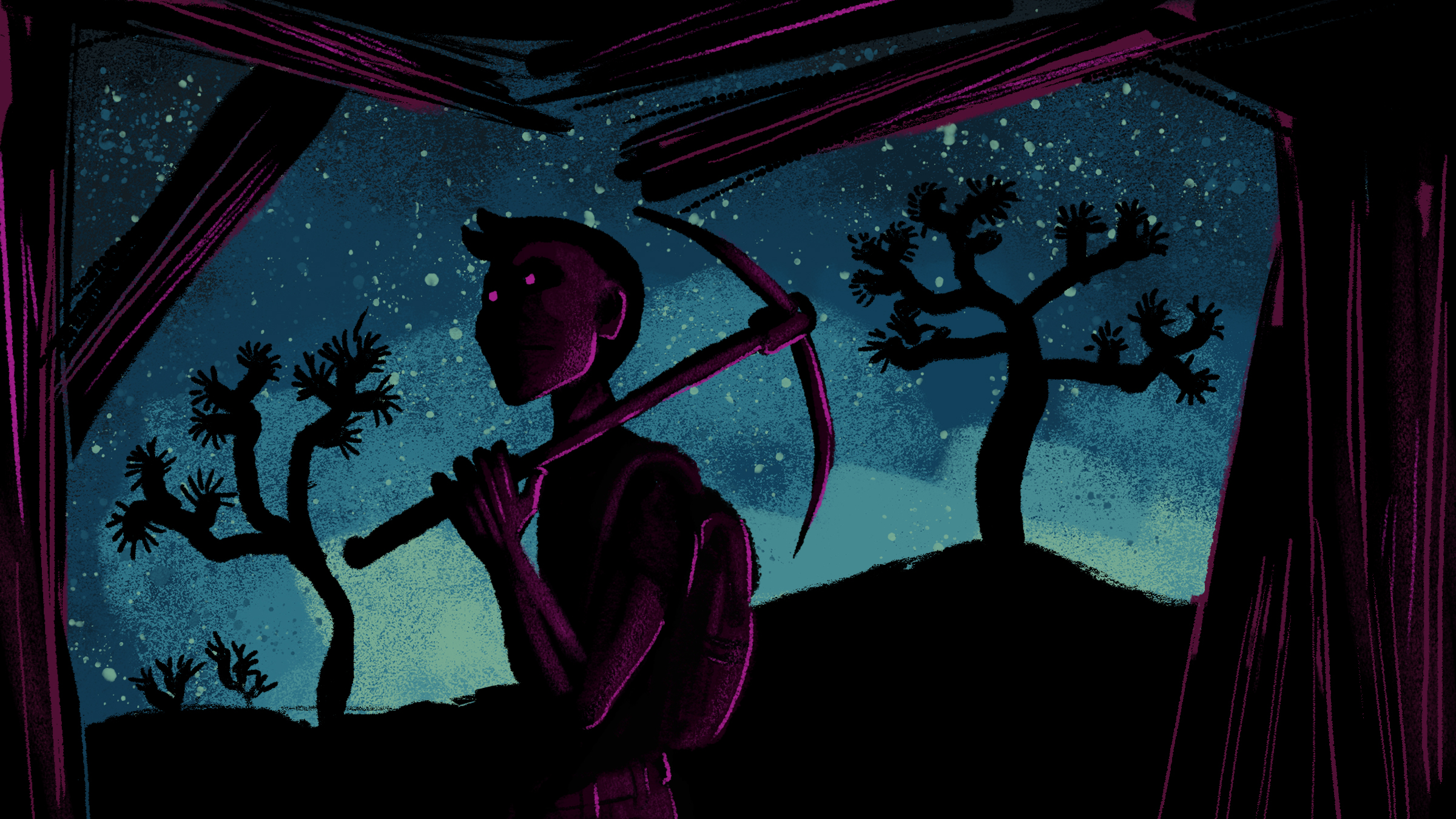
Off the top of your head, who are some artists whose work you love that fans of your comics should check out?
Ben Passmore’s Your Black Friend: half available to read online here
The way that Ben writes deeply informs that way that I do; I look to him for inspiration, guidance, and laughter. While he and I make extremely different things, he is like my comic sensei. He is my true critic and confidant, and I listen to him more than most people when it comes to comic writing theory. His is a true love of the art form, and he is probably the most dedicated person I know.
Vulpes’ Çapulcu: read the whole thing online here
When it comes to writing about stories that are lesser told, and perhaps swept under the rug by the media, Vulpes is key. He creates stunning and ethereal real-life recounting of life at the barricades in Istanbul in this comic. The violence and silence of bodies bruising under brute force is subtle and also gut-wrenching with Vulpes’ loose and thick black lines. I have a hard time with inking, so I really look to artists like Vulpes for inspiration.
Alisha Rae’s Bio Comics: most available online here
There is a lot of conversation within comics about fiction verses non-fiction, and I’ve always been a vocal supporter of biography comics. None are more sweet and honest than that of Alisha Rae. Her concise and sweet biography comics often make me laugh out loud. They walk the line between self deprecating and openly honest while crystallizing the beautiful snippets in the day-to-day that we all tend to forget. Also, she’s been delving into watercolor lately, which I’m a huge fan of.
Luke Howard’s Dead-End Rob Issue One: savailable to read here
Luke Howard is my hero. That’s it. Dead-End Rob has me hooked, and you are so lucky to be reading this right now because he is inches away from posting Issue Two and I’ve been dying to read it for the past year. Luke’s crisp aesthetic packs a punch and is so recognizable that I can identify his drawings from a mile away. His line work, story, and color choices constantly inspire me to clean up my act. I’m desperate to know what happens to Rob.
LOOK AT EVERYTHING M CHANDELIER HAS EVER MADE here
If there’s anything I can tell any human being, it’s this. Look at everything this human has ever made. M has created an aesthetic that defies definition. There are no words that I could use to concisely describe the world they have created with their music, words, illustrations, and comics. They blur the line between performance, historical fiction, science fiction fantasy, queer porn, diary, and speculative fiction. All I want is to get all of their drawings tattooed on me endlessly.
What question do you like to be asked / wish you were asked but never were… and what’s the answer?
Do you know what you’re doing?
No. Please don’t assume that I do. And please never look to me for answers. I’ll give you whatever I’ve got. I promise I’ll do my very best. But mostly I wake up plagued by the same doubt and indecision that anybody does. I think that the assumption is made of art makers that by releasing their work publicly, they believe that what they are saying is infallible.
I am an ever-changing dynamic human being. I learn from my mistakes. But my mistakes are on the Internet for you to read. They are not my gospel. In fact, they haunt me. By making them public, they have changed me. If I had not posted them publicly, I would not have changed into the person I am now. I do not regret what I have done. But I have been looked to for guidance by a few people, and this alarms me. If there’s anything you should learn about me from my book, it’s that I live in a constant state of staring in the mirror and questioning the validity of the words coming out of my own mouth. This may or may not be useful. This may or may not be a catch-22 endless funhouse mirror of white guilt. But it’s the way that I am. I am not promoting it, per se. I am hoping to use it as a narrative device to say a few very important things that I haven’t said yet. Trust me, they’re coming. The past five years of my life have all been working toward what will total up to be a paragraph of very meaningful text. I am not sure if this is good writing or not. It is just my process. Okay, that’s it! That’s what I’ve got.
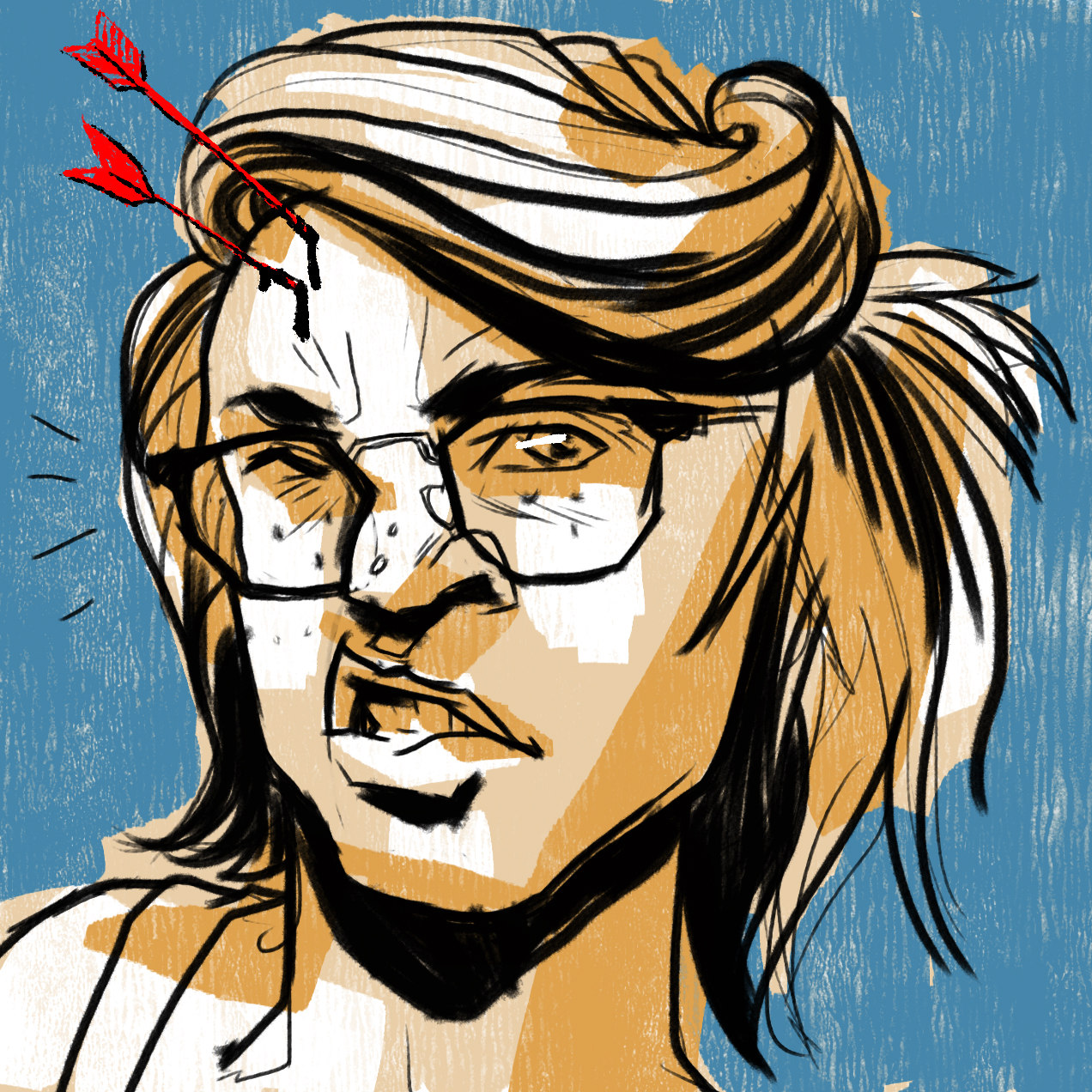
If you want to see more of Erin’s work, visit her website, follow her on Tumblr, get a copy of her book, and check out her contribution to As You Were: Living Situations.
